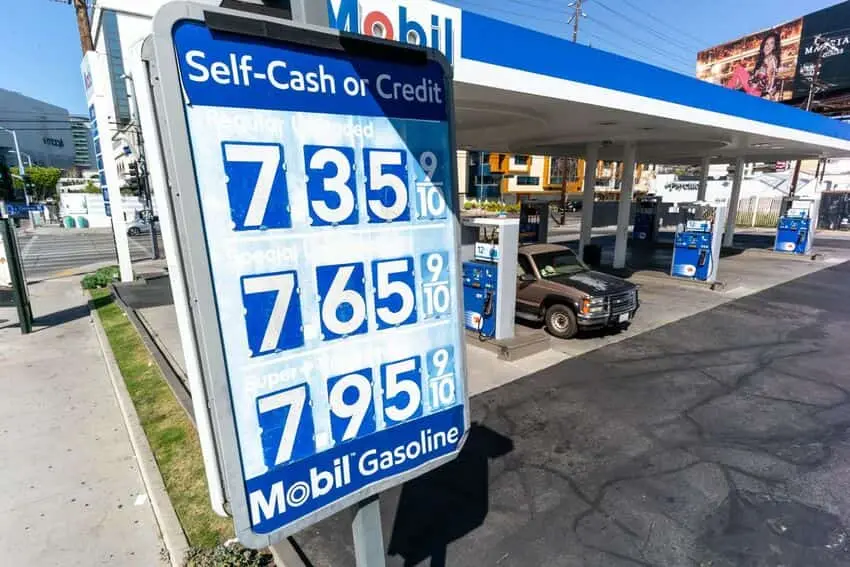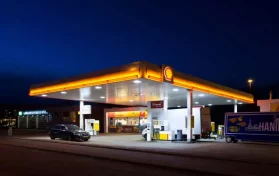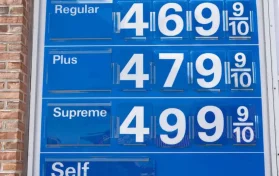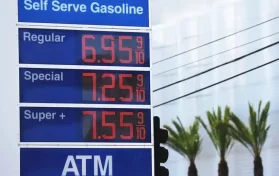
On Sunday morning, the national average price for one gallon of gas hit yet another record high at $4.61 per gallon. An expected 39 million Americans are predicted to have plans to hit the highways and byways of the countryside; however, there is no indication that the high prices will impact the rate of travel expected on summer’s first holiday weekend.
After eleven days of record national average gas prices, AAA reported that the price of gasoline held at around $4.60 per gallon for about one week.
Diesel has dipped slightly, with the national average price for one gallon of diesel at $5.549 on Memorial Day weekend.
One year ago, however, the national average price for a gallon of gasoline was $3.09.
As usual, experts say that the reason for this dramatic uptick in gas prices has to do with the increased seasonal demand due to summer travel as well as elevated crude oil prices.
The price of crude oil per barrel is up by almost sixty percent in 2022. However, during the past week, the price per barrel was “relatively stable” on Wall Street.
GasBuddy, an organization that tracks the most affordable gas prices in an area, carried out a survey last week. They determined that while consumers are “concerned” about the high cost of gas, Memorial Day weekend is set to be the most popular weekend for travel during summer 2022. Consumers also stated that inflation is one of their top concerns; inflation, of course, has a direct effect on gas prices.
Seventy percent of Americans surveyed by GasBuddy said that their summer travel plans had been affected by the high cost of fuel. This figure is nearly three times the number of individuals who said the same during summer 2021.
According to financial analysts, the price of fuel usually peaks in mid-May. However, these same experts believe the price of fuel will actually rise until it finally peaks in July. They also expect the national average price to rise to $5 per gallon. In California, gas has already surpassed $6 per gallon.
CNBC reported on Friday that many Americans changed Memorial Weekend plans due to the skyrocketing cost of fuel. Patrick De Haan, who is the head of GasBuddy’s petroleum analysis department, says, “. . . if (drivers) do (hit the road on a trip), I think a good portion are going to be staying close to home.” De Haan added that his data reveals more people are driving less as a result of the high cost of fuel.
Data suggests that while millions of Americans still intend to take some type of trip over the holiday weekend, there will still be less driving than in 2019. In fact, AAA expects for just over seven percent less of drivers will be on the road during Memorial Day weekend.
Analysts are already seeing individuals filling up less. It is the hope that the decrease in demand will begin to ease further gas price increases.
Data gathering by the federal government shows that over the past four weeks, only 8.8 million barrels of oil are being used daily. That’s a decrease from the same time period last year, when the daily average was 9.1 million barrels. Patrick De Haan said that that is a decrease seen in 2011 and 2012, the last time record high gas prices were affecting Americans.
De Haan referred to the lessening of purchasing fuel as “demand destruction.”
The Energy Information Administration says that, when adjusted for inflation, gas prices are the highest since 2012. JP Morgan economic experts believe that the national average price of a gallon of gas could hit $6. Yet, nearly ninety percent of Americans say they plan to travel this summer, while half of those surveyed said that fuel consumption – and its cost – is a “major concern.”
At least forty-four percent of those surveyed said they will probably postpone any travel plans they had for the summer, and thirty-three percent said they will flat out cancel their plans.





